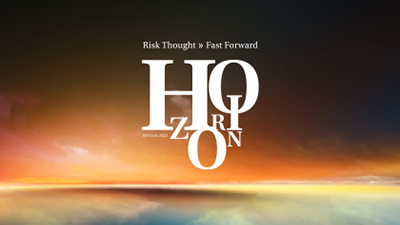The automotive industry makes a significant contribution to value creation, and not only in Germany. According to the Yearbook of the Automotive Industry Association 2022, there are 355,000 employees in this sector in Austria. The approximately 40,000 employees in production alone generated EUR 15.6 billion in 2020, with an export ratio of 87%.
Understanding Your Risks
The fact that mobility is undergoing an unprecedented upheaval is demonstrated by the growing number of electric vehicles. Today’s cars are packed with chips and cutting-edge technology. However, ever newer systems, just-in-time deliveries around the globe and field trials are also leading to a host of new risks.
The most frequent risk is posed by potential product liability and the recall of vehicles due to safety-related defects. According to the Center of Automotive Management in Baden-Württemberg, 380 million vehicles were recalled due to such problems in the reference market USA alone in the period from 2011 to the first half of 2021. This corresponds to a recall rate of 203 percent, i.e. more than twice as many vehicles were recalled than new cars were sold in the same period.
It is obvious that OEMs (Original Equipment Manufacturers) do not want to be left with the costs of the recall (for the vehicle inspection, the removal of defective parts and the installation of defect-free parts). This makes comprehensive risk management all the more important, as does crisis preparedness for all stakeholders, an area in which we would be happy to advise and support you.
Away from product liability comes a host of risks that affect the automotive industry as a whole. Corona, chip shortages, hard-to-find raw materials like aluminum, magnesium and palladium, and on top of it all, the stranded Ever-Given in the Suez Canal. In hardly any industry is the dependence on global supply chains more visible; just think of delivery times of 1 to1.5 years for a new car. Here, too, it is important to take precautions to avoid being at the mercy of external factors that are difficult to influence. GrECo has been supporting its clients in supply chain management for many years in order to be optimally prepared for difficult times.
In addition to suppliers, attention should also be paid to the customer side. Our experts in accounts receivable and credit management advise numerous companies in the automotive industry. This sector in particular is directly exposed to the influence of global and political factors due to the high export quotas, which go far beyond the mere question of the buyer’s liquidity.
Providing Tailored Solutions
GrECo is the leading advisor to local and global suppliers to the automotive industry, developing proven solutions in risk and insurance management:
- Identification of the risk from damage to tangible assets.
- Identification of risk from legal and contractual obligations.
- Hedging of liability potential for operational, product liability and recall risks.
- Support in supply chain management including special coverage provisions for the entire value chain.
- Credit and accounts receivable management.
- Special solutions in the areas of D&O, cyber and crime to cover financial losses.
- Development of customized, international insurance programs to ensure uniform coverage worldwide.
Creating Added Value
As risk specialists, we see ourselves as partners of our clients, whose task goes far beyond insurance management. As a client of GrECo, you will experience, among other things, active support in the area of the underwriting review of your supply contracts. Especially the automotive industry knows a multitude of contractual obligations which are more far-reaching than the coverage of typical liability insurances.
- Warranty extensions
- Reference market and concept responsibility procedures
- Responsibility quotas depending on the supplier’s depth of development
- Liquidated damages
- Waiver of inspection and complaint obligations
- Arbitration proceedings
Our experts are happy to take a deep look at your contracts. The earlier you involve GrECo, the better we can support you in your day-to-day business. If you send us the drafts before signing the contract, we can provide clarity on insured, non-insured and insurable components of your supply contracts. On the one hand, this service provides you with an appropriate basis for your contract negotiations with suppliers and customers, and at the same time with needs-based hedging concepts for your residual risks.
Latest Insights
Sustainable Construction Articles Series
We invited stakeholders along the value chain to shed light on their strategies, new success models, opportunities and risks in the fight against climate change as part of a mini-series on the topic of “sustainable construction”.
Is Water Scarcity Dangerous for the European Food Industry?
The risk of water scarcity is one of the key considerations in the risk management and ESG policies of food and agriculture companies. But where there’s acute risks, there are huge opportunities for change: Water scarcity concerns are driving innovation in the food industry and with members of the…
What decision-makers need to consider when it comes to ESG
Future-oriented action strengthens strategic resilience.









